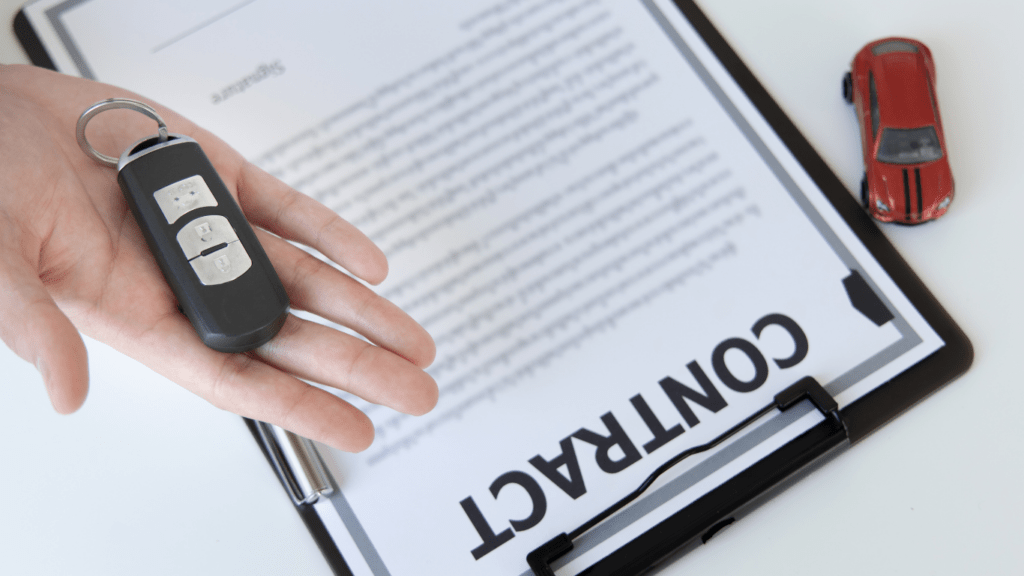Research Rental Companies
Selecting the right rental company ensures a smooth and cost-effective car rental experience. It’s crucial to conduct thorough research before committing to any option.
Compare Prices
Prices vary widely among rental companies. To find the best deal, I recommend using comparison websites like Kayak or Rentalcars.com. These platforms aggregate prices from various companies, enabling quick comparisons.
Platforms often display rates for multiple car categories including economy, compact, and luxury. Checking these categories helps identify the best price for the desired car type. Renting cars in advance typically results in lower prices compared to last-minute rentals.
Read Reviews
- Reviews play a critical role in evaluating rental companies.
- Websites like TripAdvisor and Yelp provide user feedback on customer service, vehicle condition, and hidden fees.
- Reading multiple reviews offers a balanced perspective and highlights any recurring issues.
- Look for reviews from travelers who rented cars in similar locations.
- If renting in Europe, focus on reviews specific to European cities.
- This contextual insight offers a clearer picture of the company’s reliability in that region.
Understand Rental Terms and Conditions

Rental terms and conditions vary by company and country, making it crucial to review them thoroughly. This section dives into three key areas: insurance policies, mileage limits, and fuel policies.
Insurance Policies
Rental companies offer different insurance options, and understanding them helps avoid unnecessary costs. Basic coverage often includes collision damage waivers (CDW), liability coverage, and theft protection. Additional coverage options typically include personal accident insurance and Super CDW, which reduces the deductible.
I recommend checking if your credit card provides rental car insurance. Many cards include secondary coverage, which works in conjunction with pre-existing policies. Call your card issuer to confirm details before declining the rental company’s insurance.
Mileage Limits
Mileage policies can impact the cost of your rental. Many companies offer unlimited mileage, especially for standard vehicles. However, some rentals include mileage limits, and exceeding these limits results in additional charges.
Specific trips can affect mileage needs. Long road trips may incur extra costs under limited-mileage contracts, while urban travel rarely exceeds mileage caps. Always verify the mileage policy during booking to align with your travel plans.
Fuel Policies
Fuel policies dictate how much gas you return the car with. The full-to-full policy means you pick up the car with a full tank and must return it full. This policy is often the most cost-effective option.
Some companies offer a pre-purchase fuel option, letting you pay for a full tank upfront and return the car empty. While convenient, you’ll lose money if you return the vehicle with unused fuel. Avoid refueling charges by choosing the full-to-full option and filling up before returning.
Understanding these key rental terms ensures a cost-effective, hassle-free car rental experience.
Book in Advance
Booking your rental car in advance ensures the best rates and availability. Let’s explore the benefits and methods for doing so.
Online Booking Platforms
Using online platforms simplifies the car rental process. Websites like:
- Kayak
- Rentalcars.com
- Expedia
offer comprehensive comparisons. They aggregate prices from multiple rental companies, making it easier to find the best deal. For example, Rentalcars.com lists prices from Hertz, Avis, and Budget, allowing a side-by-side comparison.
Seasonal Discounts
Seasonal discounts can significantly reduce rental costs. These discounts often appear during off-peak travel times when demand is lower. For instance, many companies offer deals during winter months. Checking platforms like Hotwire or Travelzoo regularly can reveal these seasonal offers. Planning your trip during these times can lead to substantial savings.
Inspect the Vehicle
Before driving off in your rental car, conduct a thorough inspection. This step ensures you won’t be held responsible for pre-existing damages or discrepancies.
Check for Damage
Examine the car’s exterior and interior for any signs of damage. Look for scratches, dents, and chips on the paintwork, bumpers, and mirrors. Don’t forget to check the windshield and windows for cracks or chips. Inside, inspect the seats, dashboard, and controls. Take photos or videos of existing damages to have a record. Report any findings to the rental agency before leaving the lot.
Verify Fuel Level
Confirm the fuel level matches what’s stated on the rental agreement. The most common policy is full-to-full, meaning you return the car with a full tank. If the tank isn’t full when you pick up the car, notify the rental company immediately. Photograph the fuel gauge for your records.
Drive Responsibly
Safe driving practices are crucial when renting a car. Being aware of local driving customs and having access to roadside support can make a significant difference in your trip.
Local Driving Laws
Many countries have unique traffic rules. These laws can include speed limits, alcohol restrictions, and seatbelt requirements. Research the driving laws of your destination before hitting the road. For example, in Germany, the Autobahn has sections with no speed limit. Conversely, in the UK, you may need to drive on the left side of the road.
Authorities in some regions enforce strict driving regulations. You could face fines or penalties if you don’t comply. For instance, in Italy, ZTL zones restrict vehicle access. If you drive in these areas without permission, you’ll incur significant fines. Understand local policies to avoid unexpected issues.
Roadside Assistance
Check if your rental agreement includes roadside assistance. This service is crucial if you encounter mechanical problems or need towing. Agencies like AAA or Hertz offer comprehensive roadside support. Knowing you have help can make your trip less stressful.
Inquire about the specifics of the roadside assistance plan. Some options may cover flat tires, lost keys, or battery issues. Ensure you have the emergency contact number and understand the procedures for getting help. Keep these details handy, so you’re prepared for any situation.




